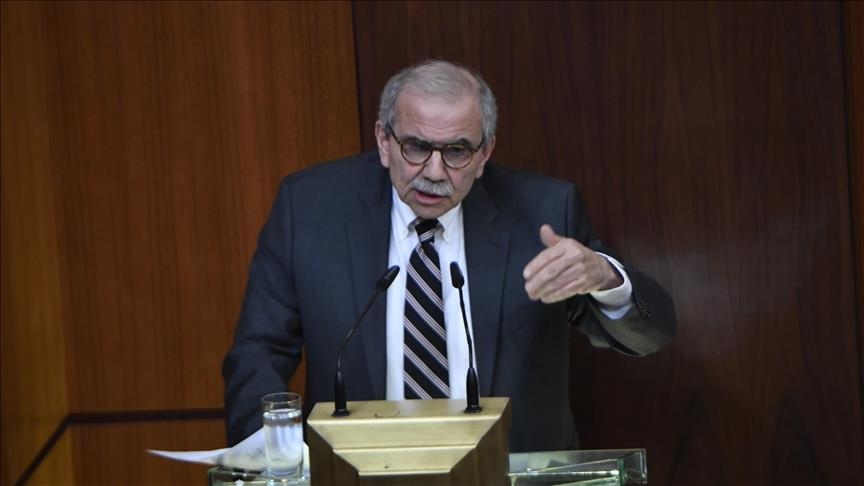Lebanon, US discuss linking Hezbollah’s disarmament to Israeli withdrawal
Lebanese premier says synchronized steps were discussed with US envoy, including Israel's pullout and restricting possession of weapons to the state
 Lebanese Prime Minister Nawaf Salam
Lebanese Prime Minister Nawaf Salam
ISTANBUL
Lebanese Prime Minister Nawaf Salam announced Monday that ideas were discussed with US envoy Tom Barrack for a synchronized process that would link Israel’s withdrawal from Lebanese territory to the disarmament of the Hezbollah group.
Speaking at a press conference following his meeting with Barrack, who is in Beirut to receive Lebanon’s official response to a US proposal to disarm Hezbollah, Salam confirmed that “limiting weapons to the state and extending state authority” has been a Lebanese consensus since the 1989 Taif Agreement, which ended the country’s 15-year civil war.
“Hezbollah is an inseparable part of the Lebanese state. Its members of parliament voted in favor of the government’s policy statement,” he added, referring to the current Cabinet’s program of action.
However, Salam condemned ongoing Israeli drone strikes and attacks in southern Lebanon and the Bekaa Valley, saying they were unanimously rejected and that Lebanon was seeking Arab and international diplomatic support to stop them.
Salam confirmed that the government held discussions with Barrack on “interlinked steps between an Israeli withdrawal from Lebanon and the disarmament of Hezbollah.”
The US has increased pressure on Lebanon to disarm Hezbollah in recent years.
On Friday, Hezbollah Secretary-General Naim Qassem rejected calls for the group to surrender its weapons, saying this would only be considered “after the end of Israeli aggression.”
Salam said the government had requested the reactivation of the committee responsible for coordinating the cessation of hostilities and urged the implementation of UN Security Council Resolution 1701, which in 2006 established a ceasefire and a buffer zone between Israel and Hezbollah.
He added that Barrack received a response paper from Lebanese President Joseph Aoun which included comments from him, the presidency and Parliament Speaker Nabih Berri.
According to Salam, Barrack also submitted a proposal for mechanisms to enforce the cessation of hostilities with Israel, including arrangements for limiting weapons possession, starting with southern Lebanon.
“The state alone holds the authority to decide on war and peace,” Salam stressed.
A senior Lebanese official, speaking to Anadolu on July 2 on condition of anonymity, said Barrack’s proposal, initially presented in June, spans five pages and focuses on three main areas.
The first concerns disarmament and restricting weapons to the state. The second addresses financial and economic reforms, border control, customs enforcement and tighter regulation of public crossings and facilities. The third involves repairing ties with neighboring Syria, including border demarcation and enhanced trade and political coordination.
Cross-border warfare between Israel and Hezbollah in Lebanon escalated into a full-scale war in September 2024. Despite a November ceasefire, Israeli forces have conducted near-daily attacks in southern Lebanon claiming to target Hezbollah’s activities.
Since then, Lebanese authorities have reported nearly 3,000 Israeli violations of the truce, including the deaths of at least 232 people and injuries to more than 530.
Under the ceasefire deal, Israel was supposed to fully withdraw from southern Lebanon by Jan. 26, but the deadline was extended to Feb. 18 after Tel Aviv refused to comply.
Israel still maintains a military presence at five border outposts.








